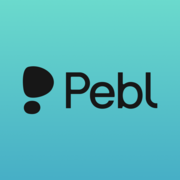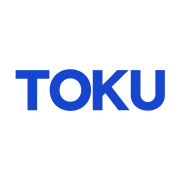
Best Professional Employer Organizations (PEO) 2026
What are Professional Employer Organizations? Professional Employer Organizations (PEOs) are HR service providers that outsource most or nearly all of a business’s HR functions. They offer organizations a combination of HR software and professional services, such as payroll processing and tax compliance assistance. PEOs are primarily used by small to midsized businesses. Their goal is often to be able to manage the full employee lifecycle administration at a company through the PEO’s software ...
We’ve collected videos, features, and capabilities below. Take me there.
All Products
Learn More about Professional Employer Organizations (PEO) Software
What are Professional Employer Organizations?
Professional Employer Organizations (PEOs) are HR service providers that outsource most or nearly all of a business’s HR functions. They offer organizations a combination of HR software and professional services, such as payroll processing and tax compliance assistance. PEOs are primarily used by small to midsized businesses. Their goal is often to be able to manage the full employee lifecycle administration at a company through the PEO’s software platform and services.
PEO’s function primarily as co-employers of clients’ employees. More specifically, PEOs will often be the “employer of record,” primarily for tax and benefits purposes, but also to share a range of employer responsibilities with the client company. These responsibilities range from administrative tasks, like payroll processing, to material provisions like benefits options and coverage.
PEOs provide several key benefits for smaller organizations. They reduce the need for larger in-house human resources teams. PEOs can often offer better benefits options to employees at smaller companies by leveraging economies of scale across many small businesses that collectively work with the PEO.
PEO Companies vs. HR Management Software
PEO and HR management software platforms can look very similar and overlap in many technical areas. For instance, they both provide software tools for conducting and managing a business’s HR processes. However, HR management software leaves the HR administration and management processes themselves to companies’ internal HR personnel. In contrast, PEOs go a step further by outsourcing and automating many, or most, of those processes entirely. However, PEOs are less likely to have some of the strategic HR tools, like specialized performance management tools.
PEOs may be more expensive than HR management software as single budgetary line item. However, PEO companies argue that the additional costs are offset by the reduction in in-house HR costs a company shoulders with a standalone HR management system.
PEO Features and Capabilities
There are common capabilities and offerings across all PEOs. While PEOs may specialize in certain areas, they should have at least a presence in most or all of these capabilities:
- Payroll Management
- Benefits administration (401k, health insurance, etc.)
- Risk Mitigation
- Employee Self-Service
- Onboarding
- Tax Administration and Filing
- Leave and Attendance Management
- HR Expertise and Consulting
- HR Regulatory Compliance
- HR Reporting
PEO Comparison
When comparing different professional employer organizations, consider these factors:
- Benefits offerings: How competitive is each providers’ benefits options? This is one of the prime advantages of working with a PEO, but the details of what each PEO offers can vary. Companies should pay particular attention to the likely needs of their current and future workforces, as different benefits plans will be more or less competitive depending on those workforce demographics.
- Pricing: PEOs can range in pricing from 3% to 15%+ of a company’s gross payroll. Given the outsourced costs around insurance and benefits coverage, the annual costs are also likely to change year over year. Companies should pay attention not only to the up-front costs, but also how pricing and costs have changed annually.
- HR Expertise: Smaller organizations in particular benefit from the outsourced expertise and knowledge that PEOs offer. Understanding how high quality and up-to-date a PEO’s expertise and support staff are is crucial information. Consider reviewers’ experiences leverage an organization’s HR expertise for the best insights into comparing PEO’s in this area.
Pricing Information
PEO pricing is usually on a per-employee basis, either by pay period, month, or year. While most PEOs don’t publicly disclose standard pricing, most estimates place PEO pricing on a per-employee basis from $900-$1,500/employee/year. Some PEOs also offer pricing as a percentage of gross payroll, often from 3%-15% of payroll at the higher end.
























